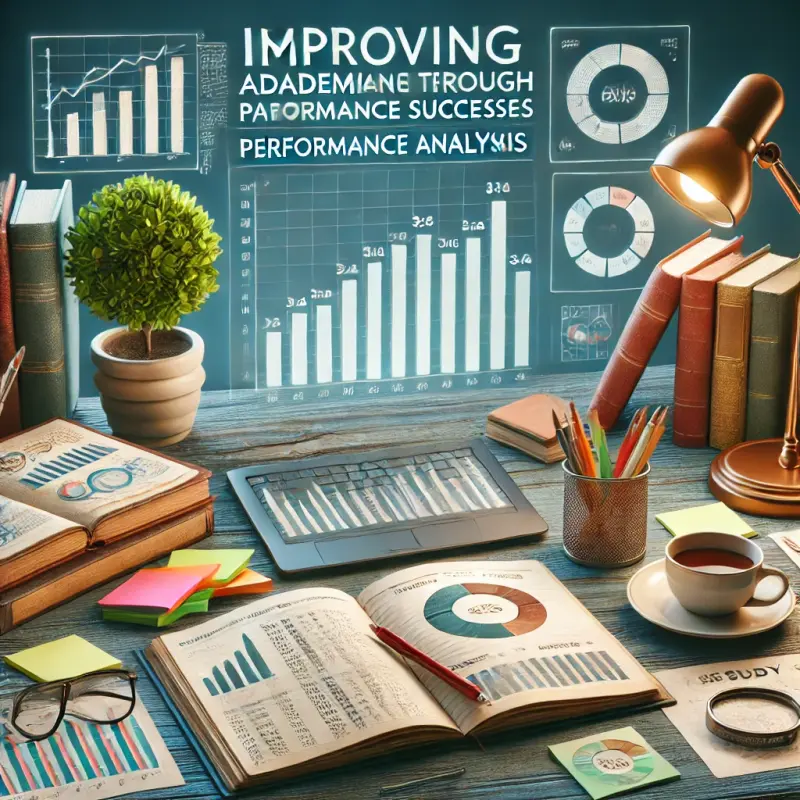How to Improve Academic Performance Through Analysis of Past Successes: The Role of Self-Analysis in the Learning Process

Academic success is not merely the result of hard work; it involves reflection, understanding, and adjustment based on past experiences. One powerful tool in the educational arsenal is self-analysis, a process where students reflect on their previous achievements and setbacks to inform future learning. By analyzing past successes, learners can identify effective strategies, reinforce positive behaviors, and adapt their study techniques to enhance their overall academic performance. This article explores the significance of self-analysis in the learning process and provides practical strategies to implement this approach effectively.
Understanding Self-Analysis
1. What is Self-Analysis?
Self-analysis is the reflective process of evaluating one's thoughts, actions, and outcomes. In the context of education, it involves examining past academic performances—both successes and failures—to gain insights that can guide future learning. This introspection helps students understand their strengths, weaknesses, and learning styles, allowing for more personalized and effective study strategies.
2. The Importance of Analyzing Past Successes
Reflecting on past successes is crucial for several reasons:
- Reinforcement of Positive Behaviors: Acknowledging what worked well in the past encourages students to continue using effective strategies.
- Boosting Confidence: Recognizing achievements can enhance a student's self-efficacy, motivating them to tackle new challenges with a positive mindset.
- Identifying Patterns: Analyzing past successes can reveal patterns in study habits, environmental factors, or subject areas where students excel, helping to replicate these conditions in future learning.
Strategies for Effective Self-Analysis
1. Keep a Learning Journal
Maintaining a learning journal is a valuable tool for self-analysis. In this journal, students can document their academic experiences, including successes, challenges, and the strategies used. Regularly reflecting on these entries allows learners to track their progress, identify trends, and develop insights into what works best for them.
2. Set Specific Goals
Setting specific, measurable goals is essential for effective self-analysis. By establishing clear objectives, students can assess their performance against these targets. After completing a project or exam, they can review their outcomes in relation to their goals, analyzing the factors that contributed to their success.
3. Seek Feedback
Engaging with teachers, peers, or mentors for feedback can provide valuable insights into past performances. Constructive criticism can highlight areas of strength and opportunities for improvement. By integrating this feedback into their self-analysis, students can develop a more comprehensive understanding of their academic abilities.
4. Use the SMART Criteria
When reflecting on past successes, apply the SMART criteria (Specific, Measurable, Achievable, Relevant, Time-bound) to your goals. This framework helps ensure that the objectives set are realistic and focused. By analyzing how previous achievements align with these criteria, students can identify effective practices and areas for growth.
5. Conduct a SWOT Analysis
A SWOT analysis (Strengths, Weaknesses, Opportunities, Threats) can be a useful method for self-analysis. By identifying personal strengths and weaknesses in relation to academic performance, as well as opportunities for improvement and potential threats to success, students can develop a clearer picture of their academic landscape and devise targeted strategies.
Incorporating Self-Analysis into Study Routines
1. Regular Reflection Sessions
Set aside regular intervals for reflection, such as at the end of each week or after completing significant assignments. Use this time to review what strategies were effective, what challenges arose, and how you can adapt your approach moving forward.
2. Create Visual Representations
Visual aids, such as charts or mind maps, can help illustrate the connections between past successes and current study strategies. By visually mapping out your learning journey, you can identify patterns and areas for improvement more easily.
3. Form Study Groups
Discussing past experiences with peers can provide new perspectives and insights. Study groups can facilitate collective self-analysis, where members share their successful strategies and reflect on their academic journeys together.
4. Celebrate Achievements
Take time to celebrate your achievements, no matter how small. Acknowledging successes reinforces positive behavior and motivates continued effort. Consider creating a visual display, such as a bulletin board of accomplishments, to remind yourself of what you have achieved.
The Psychological Benefits of Self-Analysis
1. Enhanced Self-Awareness
Self-analysis promotes greater self-awareness, allowing students to understand their motivations, learning styles, and emotional responses to academic challenges. This heightened awareness can lead to improved self-regulation and decision-making in the learning process.
2. Increased Resilience
By analyzing past successes and setbacks, students can build resilience. Understanding that failures are part of the learning journey fosters a growth mindset, encouraging individuals to view challenges as opportunities for growth rather than insurmountable obstacles.
3. Motivation and Engagement
Regular self-analysis can enhance motivation and engagement. By reflecting on achievements, students are more likely to feel connected to their learning process, leading to increased commitment and enthusiasm for their studies.
Conclusion
Improving academic performance through self-analysis is a powerful approach that encourages students to reflect on their past successes and failures. By keeping a learning journal, setting specific goals, seeking feedback, and utilizing tools like SWOT analysis, students can develop a deeper understanding of their learning processes. Integrating self-analysis into study routines not only enhances memory and retention but also fosters self-awareness and resilience. Ultimately, the ability to analyze one’s performance will empower students to take charge of their learning journey, leading to greater academic success and personal growth.
Artykuły
Zapisz się do naszego newslettera, aby najnowsze i najciekawsze treści trafiały prosto do Twojej skrzynki mailowej!